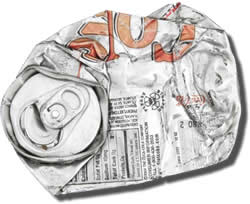 Paul Jacobs offers thoughts on the reprecussions of failing to market your product properly:
Paul Jacobs offers thoughts on the reprecussions of failing to market your product properly:
A recent article in The Miami Herald about the market share decline of Diet Coke really hit home. Over the past two years, market share for the brand has flattened out. Why? Well, for many reasons that radio operators should be able to relate to:
1. They stopped marketing the brand. Even though they expected this "flanker brand" to shore up declining sales of flagship Classic Coke, they stopped providing the marketing muscle, assuming that Diet Coke would continue to grow on its own. Many rock stations (especially Alternative and Active Rockers) are also positioned as flankers in their cluster, and have similar expectations. Yet it’s no secret that marketing budgets in radio have been virtually eliminated. No surprise what happened to Diet Coke. Or to these radio stations.
2. They assumed the market was constant. Appeal of the diet cola category is declining, which was something they didn’t anticipate. Part of the reason is the influx of new competitors (waters, teas). But the entire category is weakening, due to less interest in carbonated drinks and concerns about the influx of artificial sweeteners. Broadcasters make similar mistakes, assuming that demand for formats, music styles, and even talent are a constant. Tastes change – just ask Alternative program directors, who constantly have to deal with ratings expectations based on the popularity of the genre from a decade ago. Combined with new entertainment offerings that didn’t exist 5 years ago (think iPods), and this shouldn’t surprise anyone.
3. They flanked themselves, and yet expected continued growth. The introduction of Coca-Cola Zero has been "highly cannibalistic" of Coke Classic and Diet Coke. The good news is that the parent company grew their market share. But I bet the brand manager of Diet Coke didn’t have a great performance review last year, despite the fact that this is part of a larger corporate strategy. Sound familiar? How many stations have experienced ratings declines at the hand of another station in their own cluster, yet retained the same high ratings expectations? Coupled with the elimination of marketing budgets, it’s a self-fulfilling prophecy.
There’s a lot to be learned from the mistakes that even the big boys make. Realistic goals, understanding change, and ongoing marketing are keys to building brands.
- Media And Technology In 2025: Believe It Or Not! - April 18, 2025
- In Radio, You Just Never Know - April 17, 2025
- The Secret To Making A Great Podcast (And Great Radio) - April 16, 2025




This is a absolutley PERFECT anology Paul….really well done. While I’m sure many groups heads will say the opposite, this is exactly the issue facing radio today (along with about 25 others:)
Great read.